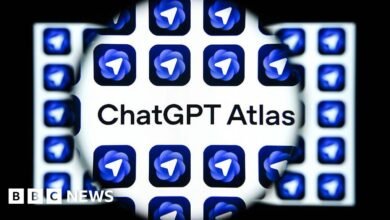OpenAI’s Math Win: Why It’s a Bigger Deal Than You Realize

▼ Summary
– OpenAI announced its AI model achieved gold medal-level performance on the International Math Olympiad (IMO), solving 5 out of 6 problems with an 83% score.
– The winning model is a general-purpose reasoning AI, not a specialized math system, marking progress toward general intelligence.
– OpenAI’s model worked without internet access, using pure reasoning to solve complex proofs, assessed by former IMO gold medalists.
– Google DeepMind also claimed gold medal-level performance with its Gemini 2.5 Pro model, disputing OpenAI’s results based on scoring criteria.
– High-level math performance demonstrates AI’s advancing reasoning capabilities, suggesting potential for future contributions to scientific discovery.
OpenAI has reached a groundbreaking milestone in artificial intelligence by developing a model capable of solving complex mathematical problems at an elite level. This achievement marks a significant leap forward in AI’s ability to reason and think methodically, challenging long-held assumptions about the limitations of machine intelligence.
The company recently revealed that one of its experimental models performed at a gold medal-winning level in the International Math Olympiad (IMO), the world’s most prestigious math competition. Unlike previous AI systems designed for narrow tasks, this model wasn’t specifically trained for IMO problems, it’s a general-purpose reasoning system that tackles challenges through natural language processing.
OpenAI’s researchers emphasized that this breakthrough isn’t tied to their upcoming GPT-5 release but stems from new experimental techniques that will eventually influence future models. The unnamed system solved five out of six problems, scoring 35 out of 42 possible points, an 83% success rate, which would have secured a gold medal in the actual competition.
What makes this accomplishment remarkable is the sheer complexity of the problems. Each proof involved hundreds of steps, with the model working entirely offline, no calculators, no internet searches, just pure logical reasoning. According to OpenAI researcher Noam Brown, the model “thinks for hours,” refining its approach far more efficiently than earlier systems.
The implications extend far beyond mathematics. AI has historically struggled with abstract reasoning, often stumbling on basic arithmetic or word problems. But recent advancements, including OpenAI’s o1 models and DeepSeek’s R1, have rapidly closed the gap, progressing from grade-school math to university-level proofs in just over a year.
Math serves as a critical benchmark for AI reasoning because even minor errors quickly derail solutions. Unlike creative tasks where ambiguity can mask flaws, mathematical precision leaves no room for hallucinations or shortcuts. Success here suggests that general-purpose AI can outperform specialized systems in domains once considered beyond its reach.
Meanwhile, Google DeepMind announced that its Gemini Deep Think model also achieved gold medal-level performance at the IMO, matching OpenAI’s score. However, some debate remains over scoring methodologies, highlighting the competitive race unfolding in AI reasoning.
Looking ahead, researchers believe this is just the beginning. As AI’s reasoning capabilities improve, its potential to accelerate scientific discovery grows exponentially. The ability to parse language, structure logical arguments, and refine solutions over time could redefine how AI contributes to fields like physics, engineering, and cryptography.
This milestone underscores a broader shift in AI development, one where versatile reasoning models may soon surpass narrowly trained systems across multiple disciplines. The era of AI assisting in groundbreaking research may be closer than we think.
(Source: zdnet)





